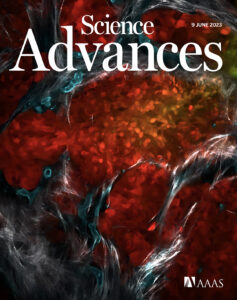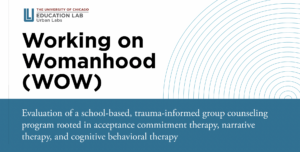Communities in Schools (CIS)

The Education Lab partnered with Communities in Schools to evaluate an intervention program of academic and socio-emotional learning supports for students at risk of dropping out of school.
Challenge
Over the past decade, we have made great strides in improving the graduation rate for public school students in Chicago and nationally, but these gains have not been distributed universally among student groups. A disproportionate number of high school dropouts continue to be low-income youth and students of color, and the barriers many of these students face to obtaining a high school diploma have yet to be addressed using traditional approaches.
Opportunity
Communities in Schools of Chicago (CISC) brings community resources into schools by implementing school-based coordinators to work with school administrators to assess student needs, develop action plans, and implement student and family support. Site coordinators continuously monitor and adjust resources to ensure these supports fully meet the needs of students and schools. In 2019, the Education Lab began an evaluation of CISC’s programs.
Project overview
Students at risk of dropping out of high school face a number of barriers to reaching graduation. Communities in Schools of Chicago (CISC) aims to address these barriers through the two programs it operates in the Chicago Public Schools (CPS): the Partnership Program and the Intensive Program. Through its Partnership Program, CISC coordinates a range of support programs for all students through its network of community partners. At the start of each school year, CISC works with school leaders to conduct a needs assessment to identify priorities for the academic year. Based on those priorities, CISC connects students with a wide range of in-school and out-of-school services and supports, from mental health and physical health services to programs that build smart decision-making skills.
Years Active
2019 – 2022
Project Leads
Fatemeh Momeni
Research Director

In 2019, The Education Lab partnered with Communities in Schools of Chicago (CISC) to conduct two evaluations. The first measures the short- and long-term impacts of the CISC Partnership Program, and the second explores the short-term impacts of the CISC Intensive Program.
The CISC Intensive Program provides school-wide support for the Partnership Program. It adds school-based CISC Student Support Managers who provide direct intensive support to students at risk of failure or dropping out. Students enrolled in the program receive a wide range of group and one-on-one support from the Student Support Manager to get students back on track with attendance, grades, and/or behavior and connections to services delivered by community partners.
The Study:
CISC Partnership Program
We evaluated the impact of the CISC Partnership Program on students’ short- and long-term academic and socioeconomic learning (SEL) outcomes. CISC randomly selected 20 schools from a pool of 47 qualified schools to participate in the program for the 2012-2013 school year. In agreement with prior research that evaluates the short-term effects of the CISC Partnership Program, we find that school participation in the Partnership Program increased students’ math and reading proficiency rates during the program year, but unlike prior research, we do not find any positive effect on attendance rates during the program year. We also do not find any detectable impact on students’ short-term SEL outcomes. In addition to short-term outcomes, we also evaluated long-term outcomes four years after the initial program year, but we did not find any detectable impacts on long-term student SEL outcomes, graduation rates, or dropout rates.
Schools were not randomly assigned to receive the CISC Intensive Program, so we evaluated the program using methods that compared schools that received CISC to statistically similar schools that did not receive CISC. Our evidence suggests that, on average, during the program year, students who received the CISC Intensive Program attended more days of school, were less likely to drop out of school, were disciplined more in school, and were suspended for more total days than their comparison peers. We are unable to document any major impact on GPA or standardized test scores. However, factors such as the particular school’s leadership, program capacity, and the student’s individual situation may play important roles in determining which students and schools were selected to participate in the CISC Intensive Program, and so the evidence on the impact on the CISC Intensive Program is only suggestive rather than causal.

Scaling Promising Practices in Youth Mentoring
This case study by Results for America highlights the Crime Lab and Education Lab’s role in the City of Chicago’s bold initiative to expand the evidence-based Becoming a Man group mentoring model to serve thousands of young men.

Randomized evaluation of a school-based, trauma-informed group intervention for young women in Chicago
Science Advances journal publication.

Working on Womanhood Research Brief
Research brief for the Working on Womanhood project.

Seizing the Opportunity to Advance Education Equity
2021 Education Lab report on barriers to education faced by CPS students.
